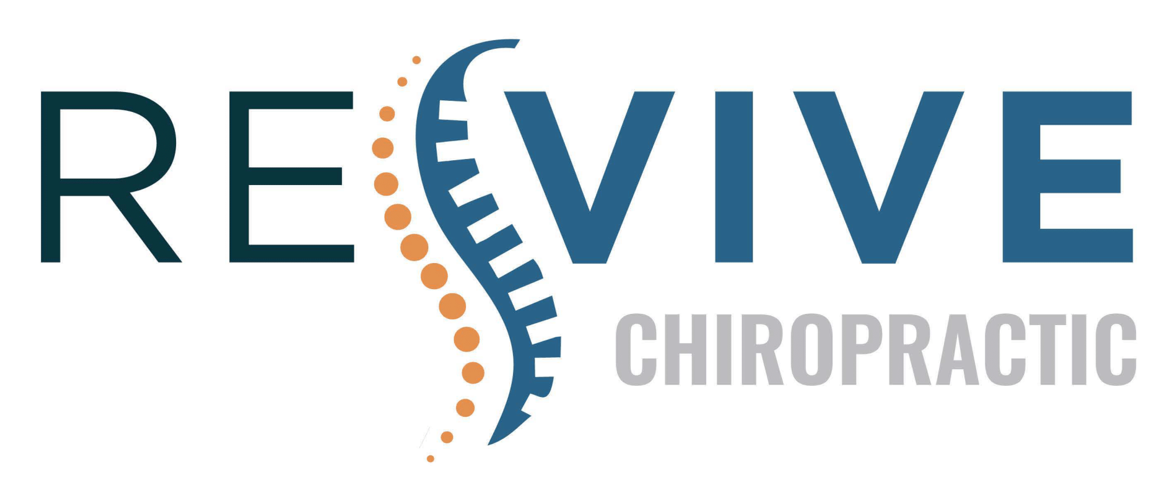When you experience a sports injury, it's easy to brush it off or hope it gets better on its own. However, seeking professional care can make a significant difference in your recovery journey. From early diagnosis to tailored treatment plans, addressing your injury promptly can prevent long-term damage and enhance your overall performance. Plus, expert guidance can provide the support you need to bounce back stronger. Curious about the specific benefits that come with seeking care? Let's explore the key reasons why it's crucial to prioritize your health after an injury.
Early Diagnosis of Injuries
When you're involved in sports, the thrill of competition can make it easy to overlook the signs of an injury. You might shrug off that nagging pain in your knee or the twinge in your shoulder, thinking it's just part of the game.
However, ignoring these early warning signs can lead to more significant problems down the road. Recognizing the symptoms of an injury early on is vital for effective recovery.
If you notice persistent discomfort, swelling, or instability in any part of your body, don't wait for it to get worse. By seeking medical attention promptly, you can catch potential injuries like sprains, strains, or fractures before they escalate.
An early diagnosis often means simpler treatment options and a quicker return to your favorite sport.
It's essential to listen to your body. If something feels off, trust your instincts. Many athletes push through pain, but this approach can backfire.
Early intervention can help you avoid long-term damage that might sideline you for an extended period.
Tailored Treatment Plans
Creating a tailored treatment plan is vital for effectively addressing sports injuries. When you seek care, healthcare professionals assess your specific injury, overall health, and athletic goals. This personalized approach guarantees that your recovery isn't only efficient but also aligns with your unique needs.
A one-size-fits-all solution simply doesn't cut it in sports medicine. Different injuries require distinct interventions, whether it's a sprain, strain, or fracture. Your treatment plan might include physical therapy, medications, or even surgical options, depending on the severity and nature of the injury. By focusing on what you need, your healthcare provider can help you heal faster and return to your sport with confidence.
Moreover, a tailored plan takes into account your sport and position. For instance, a basketball player and a marathon runner may face different recovery needs despite suffering similar injuries. Your treatment plan will factor in the specific demands of your sport, making sure that you regain the strength, flexibility, and endurance necessary for peak performance.
Regular check-ins during your recovery process are also important. They allow your healthcare provider to adjust your treatment plan as needed, making certain that you're progressing appropriately. This adaptability helps you avoid setbacks and promotes a smoother path to recovery.
In short, a personalized treatment plan is your best ally in overcoming sports injuries. It sets you up for success, enabling you to bounce back stronger and more resilient than before.
Don't underestimate the power of tailored care in your healing journey.
Prevention of Long-Term Damage
A personalized treatment plan not only aids in recovery but also plays an important role in preventing long-term damage from sports injuries. When you seek professional care, you're taking a proactive step to protect your body from the lasting effects of injuries that could hinder your athletic performance or everyday activities.
Ignoring injuries or failing to follow a structured recovery plan can lead to chronic pain, reduced mobility, or even permanent damage. By addressing your injuries promptly, you can greatly minimize these risks.
Here are some vital aspects of a personalized treatment plan that help prevent long-term damage:
- Accurate Diagnosis: Getting a clear understanding of your specific injury guarantees targeted treatment.
- Tailored Rehabilitation: Customized exercises and therapies strengthen injured areas, promoting better healing.
- Education on Injury Prevention: Learning proper techniques and body mechanics helps you avoid re-injury.
- Regular Monitoring: Ongoing assessments allow adjustments to your treatment plan based on your progress and needs.
When you're proactive about your health, you can maintain your performance and enjoy your favorite sports without the fear of long-term consequences.
Investing in the right care now pays off in the future, keeping you active and injury-free. So, don't wait; prioritize your recovery and take the steps necessary to safeguard your body against long-term damage.
Enhanced Recovery Time
When you sustain a sports injury, enhancing your recovery time is vital for getting back in the game.
Focused care can accelerate your healing process and greatly reduce the risk of complications.
Accelerated Healing Process
How can you speed up your recovery from sports injuries? Seeking professional care can greatly enhance your healing process.
With the right treatment plan, you'll not only recover faster but also get back to your favorite activities sooner.
Here are some key ways to accelerate your healing:
- Targeted Rehabilitation: Customized exercises can strengthen the injured area and promote faster recovery.
- Advanced Therapies: Techniques like ultrasound, electrical stimulation, or laser therapy can help reduce pain and inflammation.
- Nutritional Support: A balanced diet rich in vitamins and minerals aids tissue repair and boosts your immune system.
- Proper Rest: Giving your body the time it needs to heal is essential, so don't rush back into action too soon.
Reduced Risk of Complications
Ensuring a reduced risk of complications can greatly enhance your recovery time from sports injuries. When you seek prompt care, you're taking the first step toward minimizing potential setbacks. Complications, such as infections or improper healing, can prolong your recovery and lead to further issues down the line. By addressing your injury with professional help, you greatly lower these risks.
Medical professionals can provide accurate diagnoses and tailored treatment plans, ensuring your injury is managed correctly. They'll monitor your progress and adjust your rehabilitation as needed, which helps prevent complications that could arise from improper care.
Early intervention can also keep you from compensating for the injury, which might lead to additional problems in different areas of your body.
Furthermore, following a structured recovery plan enhances your chances of returning to your sport faster and safer. With proper guidance, you're less likely to rush back into activity before you're fully healed, which can lead to re-injury.
Ultimately, reducing the risk of complications not only speeds up your recovery but also lays the groundwork for long-term health and performance. Seek care promptly and give yourself the best chance for a swift, complication-free recovery.
Guidance on Rehabilitation
Rehabilitation after a sports injury is essential for restoring strength and function, allowing you to return to your favorite activities.
When you're recovering, it's vital to follow a structured rehab program tailored to your specific injury and needs. Here's some guidance to help you through the process:
- Consult a Professional: Always seek advice from a physical therapist or sports medicine specialist. They can create a personalized plan to target your recovery effectively.
- Follow Your Plan: Stick to the rehabilitation program your provider sets for you. Consistency is key to regaining strength and mobility.
- Listen to Your Body: Pay attention to how your body feels during rehab. If something doesn't feel right or you experience pain, don't hesitate to reach out to your healthcare provider.
- Gradual Progression: As you improve, your rehab activities should gradually increase in intensity. Avoid rushing the process, as this can lead to re-injury.
Improved Performance Post-Injury
After recovering from a sports injury, you might find that your performance can actually improve beyond your previous levels. This might seem surprising, but it's often the result of a more focused approach to training and rehabilitation. When you've faced an injury, your body undergoes changes that can lead to enhanced strength, flexibility, and endurance.
During your recovery, you're likely to pay closer attention to your body mechanics and overall fitness. This renewed focus often leads to better techniques and improved skills. You may also discover new training methods that emphasize injury prevention and overall athletic development. This can help you build a stronger foundation for your performance moving forward.
Moreover, rehabilitation typically incorporates exercises that target not only the injured area but also strengthen surrounding muscles. This holistic approach can cultivate better balance and coordination, which are vital for athletic success.
As you regain confidence in your abilities, you'll likely push yourself harder, which can lead to breakthroughs in your performance.
Additionally, you'll probably find that the mental resilience developed during recovery translates into a stronger competitive mindset. You learn to handle setbacks more effectively and stay focused on your goals, which can provide an edge in performance.
In short, while recovering from a sports injury is challenging, it can also serve as a catalyst for enhanced performance. Embrace the journey, and you might just surprise yourself with what you can achieve.
Access to Specialist Care
Access to specialist care is essential for effective recovery and performance enhancement following a sports injury. When you're sidelined, it can feel overwhelming, but turning to a specialist can make all the difference. They possess the knowledge and skills to assess your injury accurately and create a tailored rehabilitation plan that helps you bounce back stronger.
Here's why accessing specialist care is vital for your recovery:
- Expert Diagnosis: A specialist can identify the specific type of injury and its severity, ensuring you receive the appropriate treatment.
- Targeted Treatment Plans: Specialists create customized rehabilitation programs designed to address your unique needs, enhancing recovery speed and effectiveness.
- Injury Prevention: They can provide guidance on how to avoid future injuries, helping you stay on the field longer and perform at your best.
- Access to Advanced Techniques: Specialists often use cutting-edge technology and treatments that may not be available in general practice.
When you seek out specialist care, you're investing in your long-term health and athletic performance.
Whether it's a physical therapist, orthopedic surgeon, or sports medicine physician, these professionals understand the demands of your sport and how to get you back to your peak.
Don't let a sports injury keep you from achieving your goals. By prioritizing access to specialist care, you're taking a proactive step toward a faster and more effective recovery.
Conclusion
Injuries can be a setback, but seeking care is your best move. By getting an early diagnosis, you can avoid serious complications and tackle your injury head-on with a tailored treatment plan. Focused rehabilitation not only speeds up your recovery but also helps you bounce back stronger than ever. With expert guidance and regular monitoring, you'll enhance your performance and extend your athletic career. Don't wait—take charge of your recovery and get back to doing what you love!



